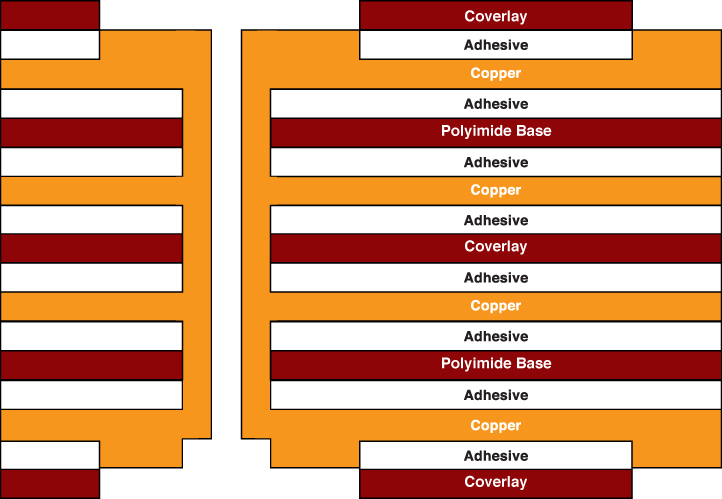
Polyester resin film thermoplastic adhesive is a high yield and low-cost material that can be rolled and processed. It can be made into heat-resistant material with copper sheet and conforms to the specification of ul-94vtm-0. It can’t pass drift tin test, the biggest using temperature is 110 ℃. Polyester resin adhesives are typically used in polyester resin-based materials, although they are occasionally used in other materials, depending on the type of application.

Acrylic adhesive is the preferred choice for making multi layer flexible PCB for a long time. Acrylic adhesives provide reasonable heat resistance, are simple to manufacture and are inherently good with many materials.
Epoxy resin is the most commonly used adhesive material in the world, which is inevitably applied in multi-layer flexible PCB. The high temperature resistance of epoxy resin is very good, and it can present the best strength value of tin bleaching. Epoxy also has a degree of hygroscopicity, so we need to be extremely careful in our work.
Polyimide adhesives are restricted from being used on polyimide substrates due to the higher process temperatures required. Therefore, if the polyimide adhesive is completely used, the multi-layer flexible PCB can present the maximum temperature resistance.
Except the above adhesives that we talked about, there are other thermoplastic materials that have been used in the past for the manufacture of multi-layer flexible PCB. These materials, including FEP and PEI, require a process similar to that of polyimide adhesives, which are generally attached at high temperature and pressure.